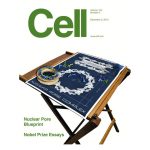Cell-state-specific metabolic dependency in hematopoiesis and leukemogenesis.
Wang YH, Israelsen WJ, Lee D, Yu VW, Jeanson NT, Clish CB, Cantley LC, Vander Heiden MG, Scadden DT.
Abstract
The balance between oxidative and nonoxidative glucose metabolism is essential for a number of pathophysiological processes. By deleting enzymes that affect aerobic glycolysis with different potencies, we examine how modulating glucose metabolism specifically affects hematopoietic and leukemic cell populations. We find that a deficiency in the M2 pyruvate kinase isoform (PKM2) reduces the levels of metabolic intermediates important for biosynthesis and impairs progenitor function without perturbing hematopoietic stem cells (HSCs), whereas lactate dehydrogenase A (LDHA) deletion significantly inhibits the function of both HSCs and progenitors during hematopoiesis. In contrast, leukemia initiation by transforming alleles putatively affecting either HSCs or progenitors is inhibited in the absence of either PKM2 or LDHA, indicating that the cell-state-specific responses to metabolic manipulation in hematopoiesis do not apply to the setting of leukemia. This finding suggests that fine-tuning the level of glycolysis may be explored therapeutically for treating leukemia while preserving HSC function.





